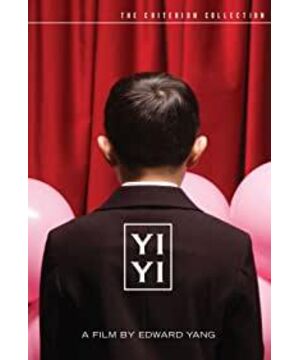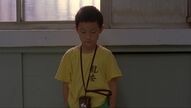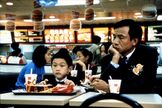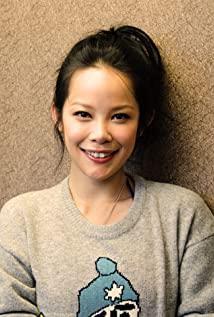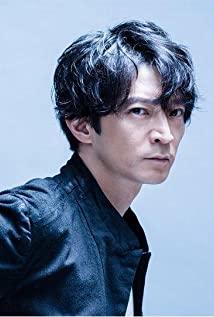reading "11" has been in the morning, released a screen on the wall pale shimmer. As if I was hit by a stray bullet, my whole body was limp on the bed, and a complex emotion surged in my body. I know I should cheer for this masterpiece, and I should say something about this heavy, deep film. But at that moment, I was suppressed by the soft body of life, and there was nothing to say.
These three hours almost narrated the whole life. Long and hurried, with complex levels and numerous clues. Juvenile, young, middle-aged, and old, everyone is showing the dilemma, contradiction, embarrassment, and embarrassment he or she has to face in his or her life stage. They follow the film step by step and complain or remain silent in the vortex of interpersonal relationships. , There are few emotional climaxes. The film is over, and the lives of the characters and us in the play seem to continue. Reality is also like the unique method of Yang Dechang's film, the deviation, conflict and drama of sound and picture. I looked at the stagnant picture and the messy room, but those characters were still walking around in their heads, making expressions, silently standing still, or crying and saying something philosophical.
Then came "Guling Street Juvenile Murders" (hereinafter referred to as "Guling Street"), and then "Mahjong", "Independence Times", and "Terrorists". On June 29, 2007, Yang Dechang completed the entire journey of this life. His thoughts are as complex, deep and rich as his movies. For this world full of absurdities and paradoxes, for this impetuous and noisy desert-like city, for the traps and whirlpools that drag people into embarrassing situations, what kind of world does Mr. Yang Dechang have in his eyes? What kind of life? What kind of calm eyes are hidden behind his black-rimmed glasses? Speaking of it without a head for a while. Think about it, then start with his birthplace-the military village.
From 1949 to 1960s, the National Government, which lost in the civil war between the Kuomintang and the Communist Party, built houses in Taipei, Hsinchu and other places in order to arrange for the ROC and their dependents who were forced to relocate to Taiwan from the mainland provinces. These include old houses with Japanese style left over from the era of Japanese occupation. These people who were displaced by the war have since taken root in the military villages, living, reproducing, and getting old. In 2007, Wang Weizhong, a talented producer of a Taiwanese TV show, produced the documentary "Mother Weizhong's Dependent Village" for five years. In the film, he glanced at the gray-haired villagers with a gentle gaze, recording their nostalgia for life in the village, and the sentiment that they were forced to move into a concrete building when the village was about to be demolished. When the old people talked about the hard years, they almost all had memorable expressions. And I am moved by the tenacity and courage of people in such an environment, and the warmth of mutual help between each other. Before and after the film, Christie Fan's "Those Flowers" is used as the background, which also deepens the nostalgia of the film.
However, memories always beautify the cruel reality. It is conceivable that the person who had just escaped from the rain of bullets was thrown into this desolate and dilapidated place just like a ruin. Without a social background and economic foundation, but unable to return to his hometown and reunite with his relatives. They can only support the broken life with their own hands, and survive patiently and tenaciously. This is a group of people without roots, destined to live in a foreign country for a lifetime. Their lives are like broken bricks and shredded tiles, thrown into the scorched earth that has been left unborn by the war.
And their children are like weeds sticking their heads out of a pile of rubble. In order to survive, they had to stick their rhizomes into the dark and cold real environment to suck nutrients fiercely. Adults are busy and hardworking, and they have no time to educate their children. The estrangement and contradiction with the locals, the changing external situation, the arduous and treacherous social environment, and the unpredictable, fierce fighting. These children can only rely on their own judgment and courage to grow up lonely and vigorously like vines.
In Yang Dechang's movies, the elements related to the military villages are everywhere. On the surface, those characters with accents from various places are a major feature of the military village. In "Guling Street", from the Sichuan dialect of the brick-patted children, the Shanghai dialect of the parents gathering, the Shanxi dialect, the Hokkien dialect, the language is as wild and complicated as the environment in which the characters are located, and the estrangement also arises from this. The characters in the play This led to a deeper misunderstanding. Even in the "Ukiyo-e" which is completely urban-themed like "Independence Age", Yang Dechang also placed a middle-aged taxi driver with a Shandong accent. He used his simplicity and simplicity to reflect that the writer was stuck in metaphysical thinking. It's ridiculous.
There is also violence. At the end of the drama, the people in the play are firmly entangled in the messy life. It seems that only violence can solve all problems. In "Guling Street", Xiao Si uses a dagger to end the depression, pain and love related to youth. He stabbed the knife into the body of his beloved girl, Xiao Ming, and yelled furiously: "You have no promise! You are shameless, you have no promise!" repeating his father's lesson to the child. Xiao Ming fell weakly, covered in blood, but he hadn't anticipated the consequences, calling out: "Xiao Ming, stand up! Stand up quickly! You won't die, trust me!" It wasn't until the facts were discovered. Weeping and kneeling down.
And in "Mahjong", the red fish who fell into despair from the scam, emotional entanglement and the fact that his father committed suicide, holding a pistol almost madly roared and shot at the worldly and see-through Qiu Dong, and then cried bitterly, pointing to his temple. The pistol was raised and lowered. Faced with this illusory, pale and empty life after being pierced, he has no way of redemption at all. There is also Li Lizhong, who is honest and silent in "Terrorists," holding a police friend’s gun, leaving with his wife, and the loss of his desire for promotion. With Kitano’s black humor, he calmly kills his love rival, director and Own. After the violent killings, there is usually a gentle plot ending, and they seem to be freshness and sadness after the problem is solved.
And through the analysis of both sides of the violence, some cores in Yang Dechang's thought can be touched. In "Guling Street", before Xiao Si stabbed the dagger, Xiao Ming stood opposite him and said impatiently: "Why do you want to change me like others? But I am just like this world, this world It won’t change. Who do you think you are?” In the play, Xiao Ming is the main cause of many conflicts and conflicts, and she herself is a bitter child who is displaced and dependent on her mother, but in the heart of the fourth, she symbolizes With all the beauty, holiness, and innocence, he wants to save her, and he does not allow others to defile her.
In "Terrorist", what Li Lizhong wants to solve is all the obstacles in his peaceful life, the people who have deceived and fooled him in this world. He solved them silently, just like solving problems in life. And what about the red fish in "Mahjong"? In front of him, Qiu Dong, who is always noisy, represents all deceit, hypocrisy, cunning, all hypocrisy, emptiness, loss of soul and faith. He symbolized all the psychedelic bubbles floating above reality, which made the red fish who had just fallen from the shattered dream unbearable. He had to break all lies and deceptions with crazy shots. He unreasonably pulled the trigger, and yelled hoarsely: "Let you feel the taste of death, how? Does it feel like death?" "Tell me what are you doing alive? What's the difference between you being alive and dead? "He forced Qiu Dong, who was bloody and trembling with fear, to express his censure and resistance to this snobbery and hypocritical society. And Yang Dechang also used such violence to shock the viewers' hearts, using these bloody scenes and angry shouts to pierce our accustomed to hypocritical smiling faces, to alert our numb and pale hearts. While the red fish was unable to commit suicide and fell down in grief, a burst of laughter sounded quickly, like a bystander mocking the farce that ended in a dismal ending; and at the end of "Guling Street", the prison guard casually took The tapes that Elvis gave to Xiaosi were thrown into the trash can, suggesting that no matter what kind of violence is used to solve them, estrangement and indifference still exist.
Perhaps it is the constant killings and fights that make Yang Dechang's movies exude a breath of death similar to that of military villages. Of course, there is another reason, and that is the speculation about life and death in the movie. In the film, there are often lengthy dialogues from the people in the play, a pun, which is like the natural development of the plot, but also like what the director wants to say to the audience. In many movies, Yang Dechang seems to want to tell us all his understanding of life through the mouth of the characters. Those characters in the play talk about life, death, society, and individual thinking after a long period of time to the screen. Like the hoarse questioning of the red fish in the dull gunfire; like Yangyang’s mother crying incoherently in front of her lying mother-in-law; like the four, Xiaoming and the teenagers in "Guling Street"; in "Mahjong" The Red Fish, "Hong Kong", and Lun Lun; Qiqi, Molly, Xiao Ming in "The Age of Independence"; Li Lizhong and his wife in "Terrorist"... They all face interpersonal relationships, real dilemmas, and emotions. The life vortex composed of entanglements and desires is full of difficulties and lifeless. There seems to be no other way but to use violent or ironic killing in exchange for the new life of the people in the play.
The only exception occurred in "One One" in 2000. This time, of course, people are still in trouble, bullied and left out of the youth; sisters who are beginning to love and feel guilty about her mother-in-law; uncle who is about to become father but is reckless and naive; and hesitates in career and emotion. Stressed parents. Only this time, Yang Dechang did not arrange a violence to solve these problems. The 53-year-old seems to have understood that there are other more peaceful ways of continuation of life, and the greatness of mankind is precisely the tenacity and unyielding will in the face of difficult situations and even death threats. The film opens in a lively wedding and ends with a cold funeral. The plot has not always been shrouded in suffocating gloom and pessimism, but occasionally has a warm light. The reality that Yang Dechang presented to us has changed from the anger that broke everything and pierced everything into the sadness of enduring pain and calmly facing in "Yi Yi".
In fact, what he often shows in his films is the confrontation between individuals and society. For each character, the reality and others in the film constituted his vision of the world, in which he felt depressed and unable to break free. But at the same time he became a shack and trap for others. Everyone endures, fights, and deceives each other in this network, until at a certain moment, the people in it are irritated by the endless farce. Yang Dechang said when explaining his creative intentions: "Guling Street is not a simple murder case. It is the entire environment that contributed to the murder, and the murderer is the entire environment, even Xiao Ming himself."
Another word needs to be mentioned here: distance. Whether it is a movie or Yang Dechang's own life, he keeps a distance from reality and society. This is also one of the smells of military villages. This habit contributed to his calmness and rationality. In fact, for the children from the military villages, he is always isolated, and he stands in opposition to the gloomy environment in front of him. Just like the little fourth, for him, the principle of his father’s precepts and deeds is incompatible with reality. He cannot remain independent in the chaotic and fierce campus. His love, his depression and confusion have nowhere to talk, and he sits gloomily. Looking forward to salvation in the dark, but behind the goddess who is generally bright and innocent, Xiao Ming also has intricate relationships and shadows. This silent young man had no way to go in the face of a powerful, heavy and gloomy world. In other films, whether facing the city or the dependents' village, Yang Dechang keeps a distance from the sidelines. It is precisely because of this calmness and rationality that he is called "the scalpel of Taiwanese society." With precise lens language, he seems to be alienated, but in fact very close to the body anatomy of social reality, touching the pulse of characters and viewers.
There is a picture that best represents Yang Dechang's gloomy, desperate, and alienating qualities. It is in "Guling Street" where the Shandong faction is bloodbathed. In the rainy night, Zhang Zhen, who had witnessed the whole killing, was in a panic, holding the flashlight he stole from the set, slowly stepping over the corpses. The blood on the mottled dirt wall was still wet, and some people were chopped to blood, but they were still groaning and trembling all over. The torrential rain outside exaggerated the atmosphere of Xiao Sha. He illuminates the dying Shandong with a flashlight, watching him whisper and try his best to grab the kitchen knife and raise it, and then hug the woman who rushes over. Zhang Zhen panted heavily and looked panicked, and walked outside the house amidst the desperate cry of the woman. The night outside was as dark as the inside, and the flashlight in his hand gave out a faint light. The background was bleak and the pace was faltering, his thin figure had nowhere to escape in front of the huge darkness. His only destiny is to be swallowed by this darkness.
And those of us who are desperate in our lives, or numb by despair, what other choices can we make besides being trapped by this powerful life vortex?
2, lyrical and alienation
Taiwanese director Tsai Ming-liang once said, Hou Hsiao-hsien, Edward Yang and intellectuals himself in nature are based on movies for the pen. It is quite interesting to compare these three directors who are also called the "troika" of Taiwan's New Wave. Their shots are kept at a certain distance from the characters, but the difference is obvious. If you make an inaccurate metaphor, Hou Xiaoxian's lens is like a mother's eyes, gentle and loving; Yang Dechang is as calm and serious as his father's eyes; and Cai Mingliang is entirely a stranger's onlooker, indifferent and gloomy. Hou Xiaoxian moved the camera slowly, following the movement of the person in front of the camera, the camera slowly flowed. Such a rhythm itself is full of tenderness, coupled with a single line narrative that is naturally smudged. Even in "Millennium Mambo", "The Man from the Wind Cabinet", and in such intense and turbulent youth stories as "The Best Time • Dream of Youth", the scenes one after another in the story of the youth are like a mother's tenderness and compassion. Watching, they soothe injured and tired children, not to mention films that are based on memories such as "My Childhood" and "Winter Winter's Holiday". Cai Mingliang sometimes doesn't even move the camera, as cold and fixed as a monitor, staring at people's lonely, lust-driven, sluggish and hopeless lives, looking for redemption. Cai Mingliang stood on the side, watching coldly, without extending a helping hand, even with a gloating expression, irony brings reflection, this indifference highlights the isolation and alienation of human beings in industrial society.
But Yang Dechang is different. He calmly sees the problem, and he is fully aware of the individual's inner anxiety and the crux of the dark parts of society. But he doesn't tell in a joking way, he just presents. Presents the individual's dilemma, the reality is cramped, and then uses the character's dialogue to think and argue. All viewers will be tortured in this presentation. Although Yang Dechang is objective, rational, and calm, we can feel strongly that his heart is close to us. Because what he presents is exactly the life profile that is ignored by us but is trapping us at the same time. He looked solemn, stern, and unsmiling like a father. On the one hand, he understands and pays attention to us in his heart. As the "surgery lamp of Taiwanese society," he cuts open the human body to illuminate the dark area that we have not noticed but is rotten.
As mentioned earlier, Yang Dechang's calm and alienated observation has a lot to do with his experience of growing up in a dependent village. Yang Dechang once described his taciturn, hostility with his teacher, and distrust of others. Some commentators believe that he has been repeating certain themes: the repressed teenage life, the loss of being rejected by the adult world. In the first test of his skills, "The Story of Time: Hope", he accurately described the feelings of young girls facing the beginning of love and physical development, and the teenagers who grew up with fantasies, but were left out and frustrated. Since then, the children in Yang Dechang's movies have been so isolated from the world outside of them. They are ignored and, in turn, look at the weirdness of adult society with a stand-out perspective. In addition to being objective, such eyes are also indifferent with incomprehension. And the social life we take for granted becomes absurd, ridiculous, or desperate and sad under this scrutiny. In "Yi Yi", Yang Dechang sets up two bystander roles, Yang Yang and mother-in-law. Yang Yang is an introverted child who uses his silence and stubbornness to resist the tyranny and majesty of the patriarchal society. And also used the camera to take pictures of other people's back, because "you can't see, I will take pictures for you to see!" This sentence has also become the director's own statement of philosophy. Based on this, many commentators believe that Yang Dechang has never left his military village. He will always be a bystander child, hiding in the dark in silence, seeing through the confused nature of our busyness and excitement, and then intercepting life. Those neglected darkness come to surprise and shock us.
More meaningful is the role of mother-in-law. Soon after the film began, she collapsed due to accidental paralysis and fell into a vegetative state of sleep. In order to cooperate with the treatment, NJ requires family members to speak with mother-in-law one by one every day. Therefore, these people sat in front of the silent mother-in-law (that is, in front of the camera) and started talking to themselves. As a result, this seemingly ordinary plot has become a fragile moment for everyone. The uncle, who is usually cheerful and talkative, whispers aphasia in front of her mother-in-law, unable to accept this kind of self-examination; the sister nervously reveals her guilt and asks her mother-in-law for forgiveness; NJ slowly talks about the plain, trivial, and tolerance of life , Understanding, but his wife was crying bitterly during the scrutiny, the pale life cannot stand scrutiny, its appearance of emptiness, repetition and similarity is vulnerable.
This is Yang Dechang's unique insight. He does not use Hou Xiaoxian's sentimental and soft scenes, nor Cai Mingliang's stagnation to absurd stillness and bizarre stories. His charm lies in the fact that he only uses the mundane details of his life, paragraphs of straightforward lines, to prove the absurdity of society itself and the isolation of human beings. This characteristic is fully demonstrated in "The Age of Independence". Every character in the film is in a complex social relationship, which seems lively and harmonious. The real situation is that everyone is dealing with these relationships in their own way, against the clueless and complex reality. Whether it is Qiqi with a smiley face as a mask, Xiaobo with a cynical gesture, and Xiao Ming with a well-dressed, steady and elegant clothes. They can only rely on their own way to face the network of relationships spread by the four college students in the film. Everyone is struggling, forming contradictions between themselves and their roles in the eyes of others. They are interdependent and closely connected on the surface of life. But when the plots are displayed densely, viewers can easily find their isolation. Although they seem to be affectionate and even on a blind date, they always live only in their own space, separated from each other and separated by a huge gap, with thick prejudices and misunderstandings between them.
Such alienation caused "confusion among Confucian scholars." The English name of "Independence Era" is "A Confucian confusion". The content of this film is the social relationship between people emphasized by Confucianism, that is, "li". However, the highest state of Confucianism is the realization of the greatest political goal through the correct handling of the smallest interpersonal relationships, that is, "cultivating one's body, coordinating the family, governing the country, and pacifying the world." But in Yang Dechang's lens, when individuals use their best to deal with all the relationships around them, they only gain isolation, misunderstanding, and confusion about absurd life. Therefore, in the film, Yang Dechang uses the metaphorical role of "writer" to express his confusion about this contradiction. "The writer" wrote a story about Confucius alive. Everyone likes his personality, but at the same time they also think that he was pretending to be, and he was eventually ruined. Theories that originally became the norm in ancient times have become the shackles of themselves in modern society. The "writer" also found sadly that no one can escape this paradox. "Death is not a reincarnation and come to this world, to repeat this fate forever." Is this the theory itself divorced from reality, or the impetuousness and hypocrisy of modern society that caused the alienation of individuals? The director did not give the correct answer, but used the characters in the play to give a ridiculous solution. A taxi driver who speaks Shandong dialect said to the "writer" who crashed: Live well, why do you think so much? A word is like a slogan, making him suddenly realize that everyone lives by his own perspective, but in fact, there are more things in life waiting for us to find. He discovered hopefully that defeating hypocrisy doesn't have to go to death, but can live honestly. This is one of the few bright colors in Yang Dechang's movies. It is humorous that the role name is "Taxi Driver (Confucius)" in the ending subtitles. It seems that Yang Dechang is expecting audiences to accept the writer's theory and to overcome the hypocrisy and impetuosity of this society by living honestly.
However, in the entire "Independence Age", only the "writer" has seen such a substance theoretically, while the others are still fighting alone in the complicated social net. However, hope and warmth always show up in the gap of despair. In fact, in such a gloomy and gloomy film, the director and the viewer are as alienated as the relationship between the characters in the play. Yang Dechang doesn't want to cater to us, and doesn't even care whether we really understand. He just finished his story and finished his theory. But there are also significant differences between these two relationships. The alienation of the people in the play is cold and cold. They are all trying their best to resist the immediate predicament, unable to be distracted to understand each other, unable to pay attention to each other, all they have is superficial communication and short-term dependence. But after we watched these Ukiyo-e scenes, Yang Dechang's eyes appeared behind the screen. There is warmth in his eyes, with pity and expectation hidden. He is waiting for the awakening of the people in the play, waiting for the viewer to see his crux from it, he used the lens to dissect out the congestion and tumor, and look closely at our hearts. He regarded it as a kind of salvation, “For me, filming a tragedy is caring and has a positive effect.”
Like the plot, Yang Dechang’s shots are simple and clean, like a line drawing, a gentle narration, not Too much emotional color. He mostly uses mid-to-long range lenses, and often uses the angle of looking up and down to outline the insignificance and humbleness of the characters. As for the space of the lens, as Mr. Zhou Chuanji said: “There is no lack of depth and movement in Yang Dechang’s films. These are the two major hallucinations of the film.” Almost all of his films have a multi-threaded narrative structure. The characters are self-contained, but they are naturally connected to each other, forming a richly layered picture. In a film like "Terrorist", the form is even larger than the story itself. Plain and exaggerated images alternately appear, dull and violent, illusion and reality, and it is impossible to distinguish them until the end. At the end of the story, a plot that seems to be the ending can always be used to summarize the whole film and hold the many clues together. Just as the same commentator said in "Guling Street": "Four hours of savings are pierced with a knife, and the whole world falls apart."
This is Yang Dechang's lyricism and estrangement, he is watching the world, watching the paradoxes and contradictions in his life. On the one hand, we show the cold truth to us, on the other hand, we are enthusiastic about making suggestions for us. In his films, in addition to the lengthy dialogue, despair is everywhere and vitality is looming. And behind this plot, we can’t guess whether Yang Dechang’s true attitude towards life is like Kafka’s only seeing absurdity and traps, or like Camus’s love after desperation. We can only talk secretly with Yang Dechang who is far away in heaven through the film. I don't know if he would talk to us a lot of theories, or watch us silently and solemnly, or show a meaningful smile to all the creatures in the desolate city.
3. Life
In 1985, Yang Dechang divorced his ex-wife, turned around and walked into the marriage hall with singer Cai Qin. This marriage lasted for ten years. The marriage of talents and beautiful women, film directors and famous musicians, seems to be a match made in heaven, but it is not as good as it seems. After marriage, Cai Qin not only agreed to Yang Dechang's request to maintain "Plato Love" without sex, but also put aside his career and fully supported her husband's film. Served as an artist and sang interlude in "Independence Times" directed by Yang Dechang, and later helped him to promote and prepare "Guling Street". Ten years of asexual marriage and dedication, the hardships of which may only be understood by the parties. At a concert after the separation, Tsai Qin was too involved in the song and couldn't help muttering to herself on the stage: "If a woman like me has been injured, if she meets a partner, should she fall in love?" Only knowing the inside story Only those who can understand the sadness and sorrow behind this sentence. After Yang Dechang passed away, Cai Qin commented in an open letter: As a woman, she gave me more loneliness than sweetness. As an audience, we have lost a sharp recorder.
The attention to Yang Dechang's private life has made us the satirical people in his films. "They don't know how to live, so they only have to wait for someone to tell them." However, understanding his life helps to understand the movie better. What's more, the dialogues and monologues of his films with philosophical connotation will be very meaningful if they are connected with his directorship in reality and our relationship. The "writer" and the host couple in "Independent Era" can almost be equated with the relationship between him and Cai Qin. The escape and thinking of the "writer", the public image that the host has worked so hard to maintain, and the speculation of their relationship by others pay attention to. Even when Yang Dechang was describing himself, he never showed agitation or sadness. His reason is immersed in the grim shots and outline plots.
Yang Dechang first studied science and engineering, studied computer in the United States, and then moved to movies. Therefore, his films lack a lot of Hou Xiaoxian's softness and exquisiteness, but more of Herzog's coldness. Most rational people are lonely. Many of his friends have confirmed this. In Chen Guofu’s view, Yang Dechang is a solitary person, "a person who always thinks but struggles with expression"; Li Liqun thinks he is "no The man of dreams".
Accompanied by reason is his "red". At the 10th Shanghai Film Festival, Zhang Zhen, who promoted "Wu Qingyuan", used "red" to describe Yang Dechang in his mind. "He is red. When I work with him, he always wears a red hat. That's me. The deepest impression of him.” Thinking about it, the red in Zhang Zhen’s mouth not only indicates the violence in Yang Dechang’s movies, but also the compassion and enthusiasm he hid in his heart. Beneath the surface of his calm image is his zeal to pay attention to society and human nature all the time. He dissects darkness, exposes absurdity, and reveals paradoxes, in fact, in order to find answers to questions with the viewer, to abandon hypocrisy, and return this The true face of the world.
However, Yang Dechang's red is not enthusiastic and eye-catching, but a deep, restrained dark red. From the children who grew up in the military villages, to the students hated by teachers, to the racial discrimination and cultural conflicts abroad. His growth experience has been hindered by external constraints. This may directly cause alienation. He watched life, society, desire, anxiety, and even love.
He is full of mistrust about love, whether it is the boredom of marriage in "Terrorist", the interdependent short-term relationship in "Independence Age", or the complete desire and emotional contact in "Mahjong". At the end of the film, he left a glimmer of life to love, such as the embrace of Qiqi and Xiao Ming at the elevator door, such as the gaze of Lun Lun and Matra on the street. But since "A Day on the Beach", his films have been full of realistic dissections of love and marriage doubts. In "Childhood", he wrote this line: "Marriage is not a panacea... America is not a panacea, just like marriage, it is just a short-lived hope that makes you think that everything can start again." When he While writing these, it was the moment when he and Cai Qin met and fell in love.
Of course, for this nation that has been dazzled by economic development, and for us who are at a loss in what to do in social changes, Yang Dechang's film's attention to individuals and society has greater practical significance. Each of his films portrays the distress and panic of human beings in the face of the rapidly changing external environment. The predicament he described will soon come to us. Perhaps by then, more people will be able to discover Yang Dechang's prophetic foresight, and the value of his worries and thinking.
And now, Yang Dechang is far away from us. Except for the eight-and-a-half works left by him, we can no longer talk to him. We can't see how this man with a sneer smile looks at the whole world coldly, how he turns into a character and tells us his attitude over and over again in the movie. Looking at the current movie theaters, there are superficial spoofs and sentimental performances at any time. The audience laughs like fools, bombarded by colors and special effects, and burst into tears with crude nostalgia and love stories. No one will notice a lonely deep thinker, no one wants to sit for three or four hours and listen to the lengthy admonitions of others. No one wants to see their own humbleness, vainness, and ridiculousness, and seeing their own values and principles of dealing with others' farce is so fragile, absurd, and vulnerable. The crisis has sprouted in our bodies. If it is not controlled, it will swell like the barren depression faced by Xiaosi until it becomes an unbearable weight. Only then can we think of Yang Dechang's movies, remembering that he had warned us of all these crises and predicaments, warned us that our pace was too fast and our temperament was too irritable, and that we changed ourselves and society beyond recognition.
Sometimes, I even think that Yang Dechang is the kid hiding behind the screen. He sits in the shadows and has never grown up. With the vigilance and trepidation of the children from the military village, he was full of confusion in the ever-changing world before him. He made a lot of attempts, trying to look at the other side of the screen, trying to get answers through reasoning. Sometimes he felt hopeless, and sometimes he saw a glimmer of life. He remembered them silently and told them calmly. In reality, Yang Dechang is indeed a child who has never grown up. His two wives, Cai Qin and Peng Kaili, have played the role of "nanny" for him. Help him deal with foreign affairs, undertake her film planning and fundraising work. Now, Yang Dechang, who is alone in another world, has adapted to the life of a person, or is he as calm as before, watching the random creatures on the earth. Whenever I think of him, I can't help but remember the paragraph at the end of "Yi Yi", perhaps this best represents what we want to say to Yang Dechang. Standing in front of her mother-in-law’s portrait, Yangyang read the words he had written on the notebook in a child’s voice: “It’s like they all said you’re gone, and you didn’t tell me where you were. So, I think it must be ours. Where I know. Mother-in-law, I don’t know too many things, so do you know what I want to do in the future? I’m going to tell others what they don’t know, and show others what they can’t see. I thought, This must be fun every day. Maybe, one day, I will find out where you have gone. At that time, can I tell you, can I ask everyone to come and see you? Mother, I miss you so much, especially me When you see that little cousin who doesn’t have a name, you’ll remember that you often tell me: You are old. I want to tell him, I think, I am also old..." The piano sounded slowly It resounded in the quiet late night, and began to play subtitles. In the long time, we have experienced so many joys and sorrows, and our hearts have been filled with the emotions of life. And just in the trance, we have passed our lives and watched the scenery on the journey. Yang Dechang accompanied us and told us the stories he saw. Then, we were old together with him.
The society is running as always, fast and messy as always. Yang Dechang and his movies lie quietly in their memories. If people really have an afterlife, I hope Yang Dechang’s afterlife can be easier, and the society and people he sees can also be less hypocritical and dignified because of his movies. Be more sincere and refreshing.
I would like to use this article to commemorate Jun Yang Dechang who has left for two years.
Yao Er wrote in the spring of 2009
View more about Yi Yi: A One and a Two... reviews


